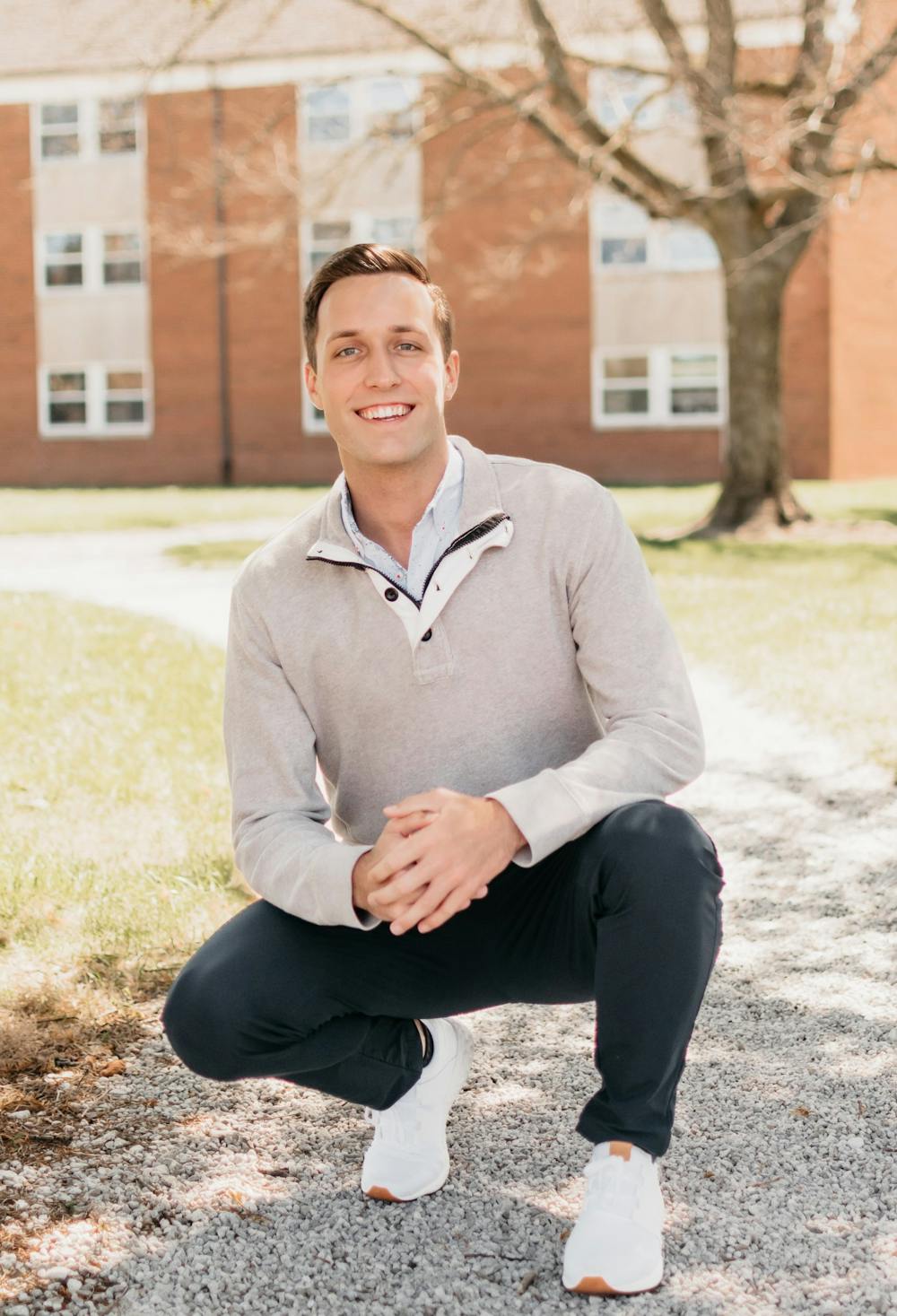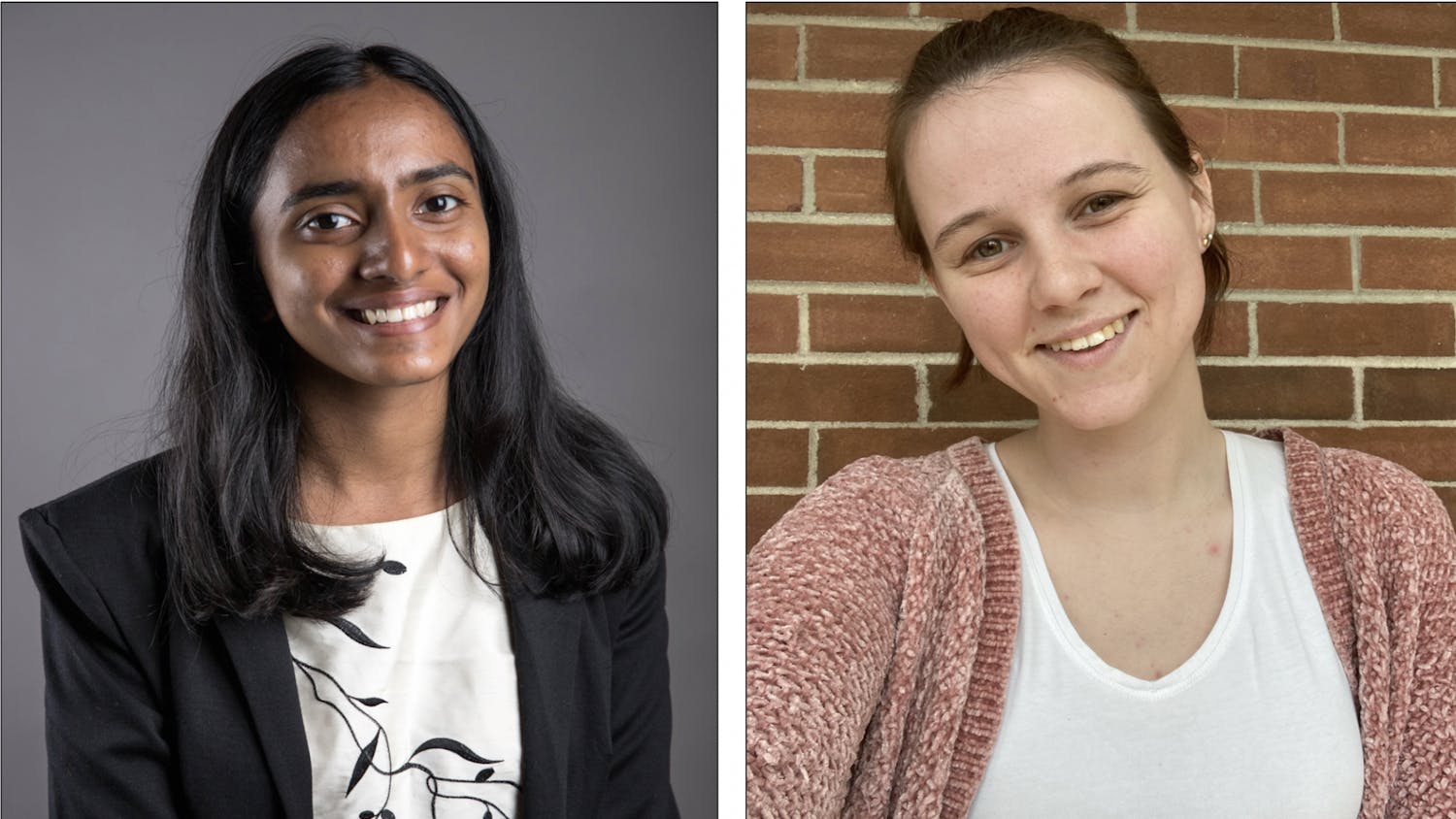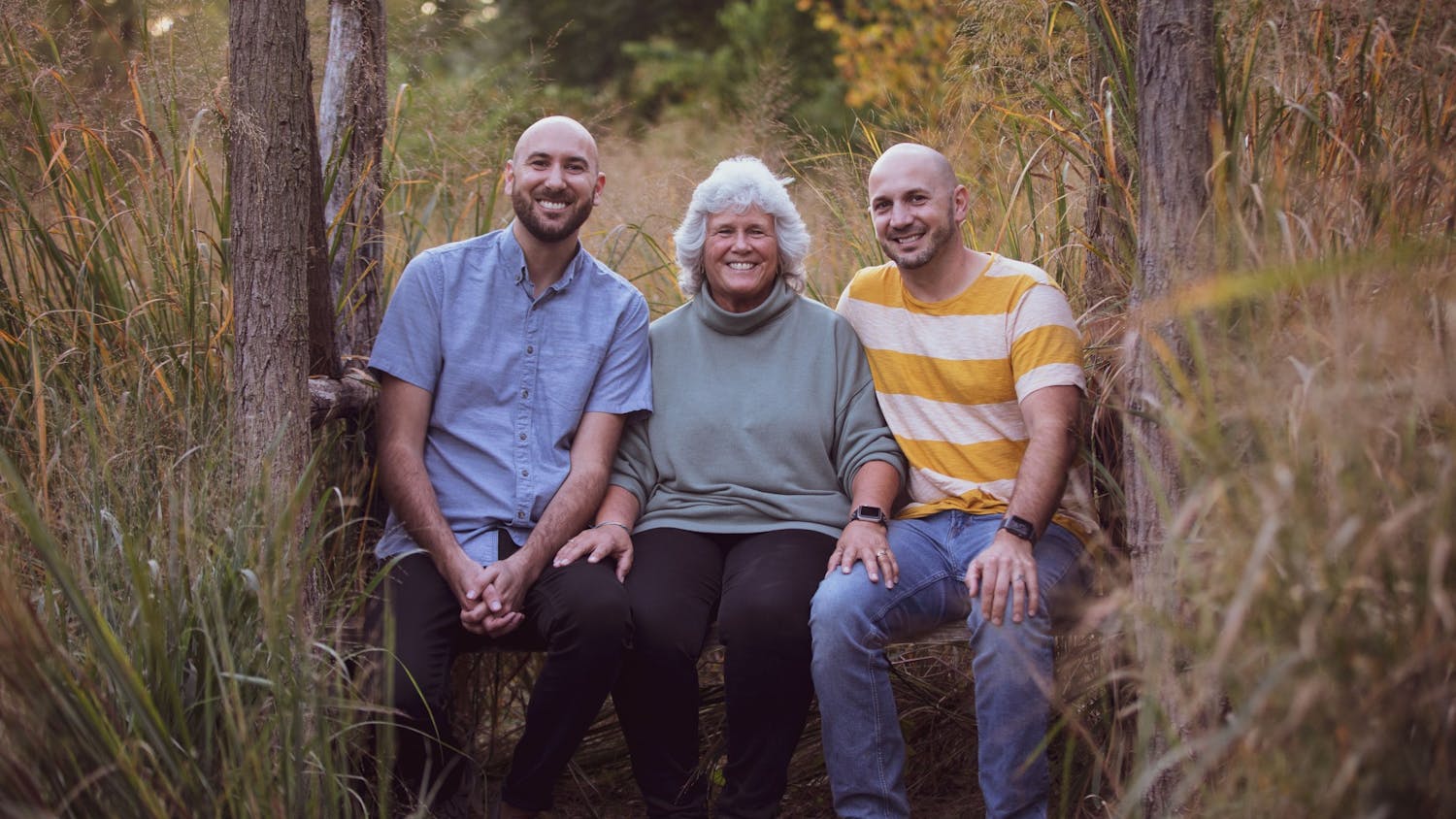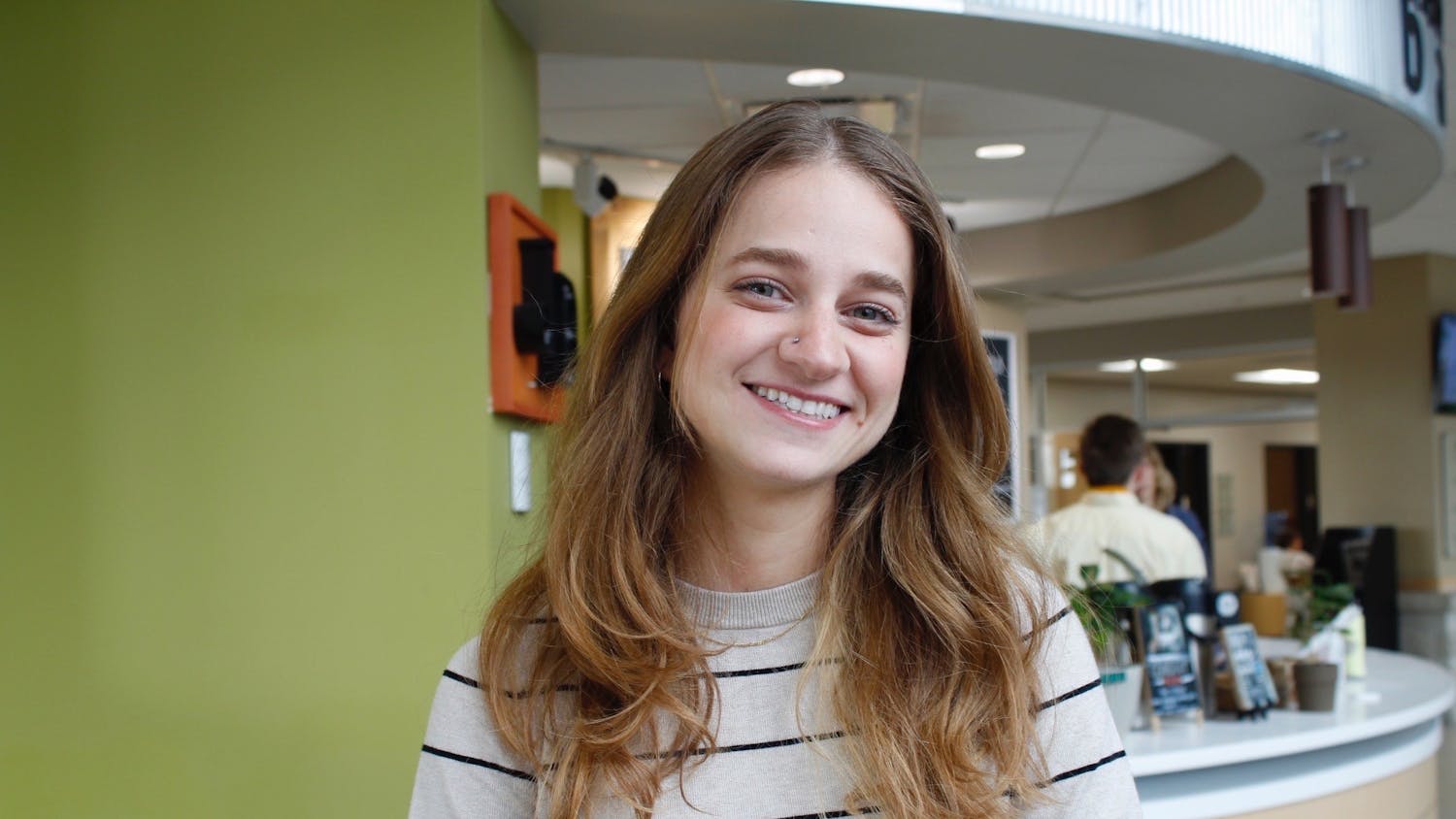Senior Austin Layton will wrap up his time at Taylor this May as a pre-med biology major with a minor in Spanish.
Layton hopes to work in pediatrics and ideally partner with his twin brother, senior Brayden Layton. His fascination with anatomy began when his parents told him about the miraculous event of his birth.
The Layton twins had a five percent chance of survival in the womb.
His twin had an amniotic leak, endangering both babies. The doctors said that if one or both of the twins successfully made it through the delivery process, they would have severe deformities… if they survived at all.
So, Layton’s parents went in for another ultrasound. The doctors found that Layton had shifted his amniotic sac to cover the exact location of the tear, where fluid was being released.
“And, so then they're like, oh, my gosh, like this is crazy,” Layton said. “Because obviously, he's still leaking fluid, but enough to where it's like, oh, he’ll have enough to hopefully develop.”
The physicians advised Layton’s parents to go through selective reduction — a medical term for abortion — in hopes of saving the healthy baby. Despite this, his parents declined because they believed God could work through their situation.
Whether they had a week or a day with their sons, they resolved to go through with the pregnancy.
The twins were born two months premature. There were complications — but not to the extent that the doctors warned. Neither of the brothers suffered from physical or mental deformities.
“All these things that we were told were going to happen, and like your quality of life is not necessarily going to be worth living for,” Layton said.
Growing up and hearing about his miraculous birth, Layton’s fascination with the human body spurred both him and his brother to pursue the medical field.
In hopes to further his medical experience, Layton planted an internship with the Navy as a freshman. But the internship fell through due to the COVID-19 pandemic. Though he did not go to DC for the internship like he planned, he was blessed through the application process by his professors.
Without the internship, Layton and his brother faced a dilemma: How were they going to spend all of their free time? What could they do with the fear running rampant in their community due to the pandemic?
“And we're kind of like, okay, we have all this free time, no one's allowed to go out and do anything,” Layton said. “But like, we want to really help…how can we help?”
Layton wanted to help the community in a way that aligned with his medical interests so he and his brother ended up working at a local nursing home. Layton began as a patient care associate (PCA).
Working in a nursing home was by no means glamorous. The job entailed toileting, cleaning and getting residents ready and dressed. Layton believes working at the nursing home was the most humbling experience he and his brother have ever had.
“In this role you literally are the hands and feet of Christ,” Layton said. “And it’s so special to be in that role.”
One of Layton’s favorite moments from working at the nursing home dealt with a difficult resident. The nursing staff viewed the resident as troublesome, and she was neglected. Layton noticed that this resident had been neglected.
So he spent extra time with her, becoming her friend.
On one occasion, when he arrived at her room to take her to dinner, she said, “I am getting ready for our date!” She had gotten all dressed up.
In Layton’s “Personal Statement,” he wrote about this experience.
“Special moments like these — where I was able to be a source of light and joy for my residents — made the difficult job so meaningful,” Layton said.
Layton learned a lot from working at the nursing home and he continued to learn afterwards. After his sophomore year of college, he scrambled in search of medical opportunities for the summer. He decided to go to South Bend, Indiana, where he shadowed Dr. Strycker — a doctor practicing family medicine at Southwestern Medical Clinic in Niles, Michigan.
Dr. Strycker had a unique perspective when it came to prescribing patients. Unlike other physicians, he desired to know and understand the “root” of his patients’ problems.
Layton described a time when a patient came into the clinic with back pain. Easily, Dr. Strycker could prescribe the patient with pain medication and be done. But what would that do in the long run?
Dr. Strycker navigated his patient through a series of questions, trying to identify the man’s problem. Eventually, both Layton and Dr. Strycker learned that the “root problem” was that the patient had been lonely. Due to the patient’s loneliness, he stayed at home and played video games, and pulled a muscle while playing VR.
Being the kind of physician to care further than the physical pain is invaluable. And Layton has learned more from Dr. Strycker than simply being a good doctor.
Dr. Strycker and his wife inspired Layton.
“They have taught me how to live simply and within my means, how to be a steward of God’s gifts and creation and the importance of spending alone time with the Lord through devotions to strengthen one’s personal relationship with him,” Layton wrote in his practicum reflection.
Layton has had opportunities to bless and to be blessed. While some of his internships have succeeded and others have fallen through, all of his opportunities have equipped him for the road ahead.
“What’s the point? The point is that I am not in control of my life, God is,” Layton wrote in his practicum reflection.
After commencement, Layton will begin medical school at Marion University.
From birth to now — God will lead and Layton will follow.





